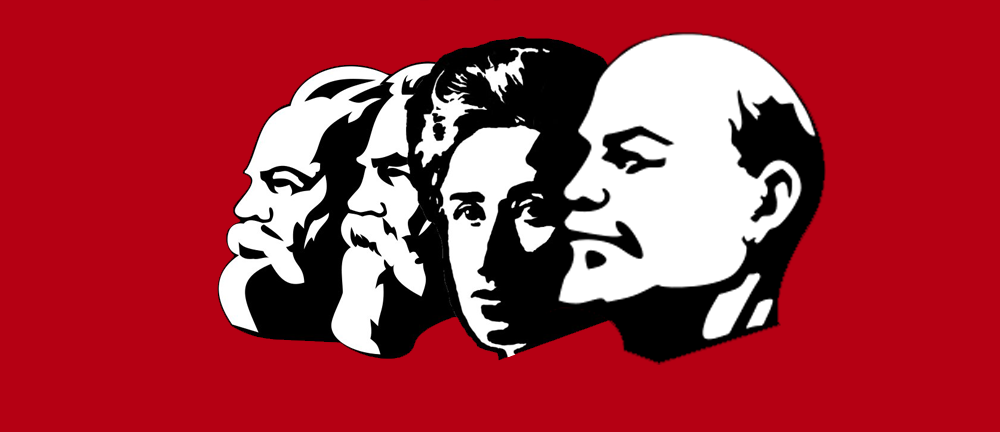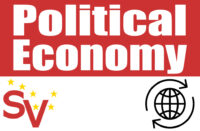Part 1
On the 14th of March we observed the 139th anniversary of Karl Marx’s death. Marx devoted much of his life to writing about the social and economic problems that plague the working class of the world, and his words still hold true more than a hundred years later.
But why was Marx so important? His works, along with those of Friedrich Engels, led to Lenin leading a revolution in Russia against the Tsar and forming the Soviet Union. Lenin later went on to write further theories that expanded on Marxism; in Poland, Rosa Luxemburg wrote her own theories for the struggle of the working class; and here in Ireland James Connolly led the struggle for a 32-county socialist republic.
The works of these and many others throughout the world have led to revolutions in Russia, Cuba, Vietnam, China, and many other countries, although not all succeeded. The ideals of the revolutionaries can be traced back to Marx’s theories. In What Is to Be Done? Lenin wrote: “Without revolutionary theory, there can be no revolution.” History has shown that Lenin was correct, as those countries that had a revolution were putting the theories to the test.
But while reading theory is important for any socialist, it’s more important to understand those theories.
Marx’s most popular work, jointly written with his close friend Friedrich Engels, is the Communist Manifesto. This work has shaped many people’s understanding of Marxism. This is an issue more than anything. Those who uphold the manifesto as all that is Marxism do not have an understanding of what they are talking about. The Manifesto of the Communist Party (as it was originally titled) was a summary of much of the work and thoughts that both Marx and Engels had up until that point, but Marx would later go on to write two pamphlets, Wage Labour and Capital and Value, Price and Profit, that both show Marx’s growth in understanding of political economy and the development of his own ideas.
These two pamphlets are a much-needed read to even begin understanding Marxism. The more complicated and arguably more important German Ideology and Economic and Philosophical Manuscripts of 1844 give some insight into dialectical materialism, the core philosophy of Marxism. Marx and Engels called this philosophy scientific socialism, as they saw that the theories they would write and of those that influenced them must be tested, the outcome studied, and new theories written.
We can see this after the revolution in Paris that established the Paris Commune in March 1871. Marx’s Civil War in France gives some insight into how the commune worked politically, and a new preface was added to future editions of the Communist Manifesto. The idea of the workers taking the state as it is and making a workers’ state by seizing the old state was shown to be wrong: a smashing of the existing state and the creation of a new workers’ state was what was truly needed.
Marx’s Capital: A Critique of Modern Political Economy was his most important work and brought his previous theories to full maturity. It’s simply not possible to get a clear understanding of Marxism through one pamphlet that was written twenty years before Marx’s most important work.
Engels said in 1874: “The indifference towards all theory is one of the main reasons the English working-class movement crawls along slowly in spite of splendid organisation.” The political and economic struggles are equally important, but the theoretical struggle is just as important.
This is where the understanding of theory for Marxists comes in. Those who understand Marxism can wage an ideological struggle against the neo-liberal views that are pushed by the modern state. These three struggles must be pushed for equally, as we cannot have one without the other. But to do this we need an organisation, and revolutionaries to lead. That organisation is the party, and the revolutionaries are those who apply Marxism to the three struggles.
The need for this can be shown through history. The success of the Paris Commune was an extraordinary moment in history for revolutionaries. The mistakes they made were not repeated in the Soviet Union, the first socialist state, because Marx and Engels learned from the Commune’s mistakes. The need for an organisation led by—as Lenin called them—professional revolutionaries and for organising the working class is a must.
This is the importance of theory: to show the working class that there is an answer to the question “Why does my boss make more than me when I do all the work?” Active revolutionaries cannot stop at political and economic struggle but must wage an ideological struggle as well. In the words of Rosa Luxemburg,
“The entire strength of the modern labour movement rests on theoretical knowledge.”






